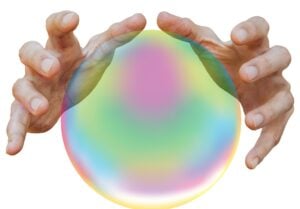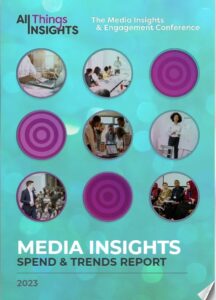Leverage Anthropology as a Cultural Catalyst
Autumn D. McDonald, owner of ADM Insights & Strategy, wrote about this topic for Forbes, in the article, “Bolstering Market Research With Anthropology.” McDonald is clearly passionate about how cultural anthropology can benefit market research. “Market research is often designed, executed, and analyzed without a robust understanding of cultures, how to study cultures, and the theories involved in such an endeavor,” she notes. “Significant opportunity exists to bolster the soundness, meaningfulness, and impact of market research by tying it more closely to culture at every phase.”
McDonald points out that tying trends to culture or a demographic group is not necessarily enough for the market researcher. Culture is complex and multi-faceted. “I define culture as the holistic system of meanings, knowledge, traditions, and practices that are formed in a community, handed down from one generation to the next and embodied in that community’s values, customs, skills, and behaviors,” she says.
This is where the study of humans and culture can add differentiated value to market research initiatives. McDonald points to three concrete ways that cultural anthropology can benefit insights:
- Continuing Education: First, as your organization invests in development, consider adopting available anthropology programs for your market research team’s continuing education.
- Cross-Disciplinary Hiring: Second, seek to build anthropological expertise among your employees by embracing cross-disciplinary diversity in hiring. It’s common for market research job postings to describe ideal candidates as having degrees in business, marketing, or consumer behavior/market research. The limited mention of degrees in the social sciences, however, is surprising, given the importance of deeply understanding humans and cultures.
- Seeking Expert Insights: Third, market researchers can hire trained anthropologists as research consultants and suppliers. Culturally grounded research methods and related theories are important for brands seeking to grow.
Lessons Learned from Anthropological Innovation
In “Applying AI to Anthropological Research,” All Things Innovation delved further into this subject through the lens of innovation and how it ties to this research. Agile research and methodologies are of primary importance to the innovation discipline, as they promote a more versatile, rapid, adaptive approach to product development. However, achieving dynamic agility involves bridging gaps and practical applications in multiple fields of study, including anthropology. Can there be synergy between artificial intelligence and the studies of human behavior such as anthropology? Can this synergy enhance the agile research methodology?
Looking forward to FEI 2024? The conference, which will be held June 10 to 12, will feature the presentation, “Agile Insights Unleashed: AI and Anthropology Transform Buzz into Reality,” presented by Ujwal Arkalgud, EVP and Group Director for Consumer Innovation, Lux Research. This session explores the pivotal role of the synergy between Artificial Intelligence (AI) and in-depth anthropological research in actualizing genuine agile research. This unique combination not only propels research methodologies forward but also deeply understands and navigates the complexities of human behavior and societal trends. The session will demonstrate the transformative impact of AI and anthropological insights working in tandem to redefine research agility. Register for FEI 2024 here.
The Insights Advantages of Cultural Anthropology
Cultural anthropology can offer valuable insights to the market research and insights profession in several ways. We asked ChatGPT to spotlight some of the key themes:
- Understanding Consumer Behavior: Cultural anthropology provides tools and methodologies for understanding the cultural context in which consumers operate. By studying social norms, values, beliefs, and practices within different cultural groups, market researchers can gain a deeper understanding of consumer behavior. This understanding helps in crafting marketing strategies, product designs, and messaging that resonate with target audiences.
- Segmentation and Targeting: Cultural anthropology enables market researchers to identify and segment diverse consumer groups based on cultural factors. By recognizing differences in attitudes, lifestyles, and cultural preferences, organizations can tailor their products and marketing efforts to specific segments more effectively. This targeted approach improves the relevance of marketing campaigns and enhances customer engagement.
- Cultural Sensitivity and Localization: Cultural anthropology emphasizes the importance of cultural sensitivity and respect for diverse cultural perspectives. Market researchers can apply this knowledge to ensure that their research methodologies, survey questions, and data interpretation processes are culturally appropriate and inclusive. Additionally, cultural insights can inform localization strategies, helping companies adapt their products and messaging to different cultural contexts.
- Trend Forecasting and Innovation: Cultural anthropology helps in identifying emerging cultural trends and shifts in consumer behavior. By studying cultural phenomena such as fashion trends, lifestyle movements, or social media dynamics, market researchers can anticipate future consumer preferences and market opportunities. This foresight enables organizations to innovate proactively and stay ahead of the competition.
- Market Entry and Expansion Strategies: Cultural anthropology provides valuable insights for organizations looking to enter new markets or expand their global presence. By understanding the cultural nuances and socio-economic factors that influence consumer behavior in different regions, companies can develop tailored market entry strategies. This includes adapting product offerings, pricing strategies, and distribution channels to align with local cultural norms and preferences.
- Ethnographic Research Techniques: Cultural anthropology offers ethnographic research techniques that enable market researchers to immerse themselves in consumers’ everyday lives and experiences. Through methods such as participant observation, in-depth interviews, and ethnographic fieldwork, researchers can gain rich qualitative insights into consumers’ behaviors, needs, and motivations. These insights complement traditional quantitative research methods and provide a deeper understanding of consumer preferences and decision-making processes.
Adding the Competitive Edge of Anthropology
Cultural anthropology enriches the practice of market research and insights by providing a cultural lens through which to understand consumer behavior, segment markets, forecast trends, and develop effective marketing strategies. By incorporating cultural insights into their research processes, organizations can gain a competitive edge and build stronger connections with diverse consumer groups.
While some in the business world may be skeptical, cultural anthropology offers a compelling case of being added into market research. “Culture affects every aspect of the human experience, including our relationship with products, services, and brands,” says McDonald. “By bolstering understanding via anthropological expertise, market research can have a greatly increased impact on the success of a business. The time for market research to leverage anthropology is both now and tomorrow.”
Video courtesy of Lux Research Marketing
Contributor
-

Matthew Kramer is the Digital Editor for All Things Insights & All Things Innovation. He has over 20 years of experience working in publishing and media companies, on a variety of business-to-business publications, websites and trade shows.
View all posts



































































































































